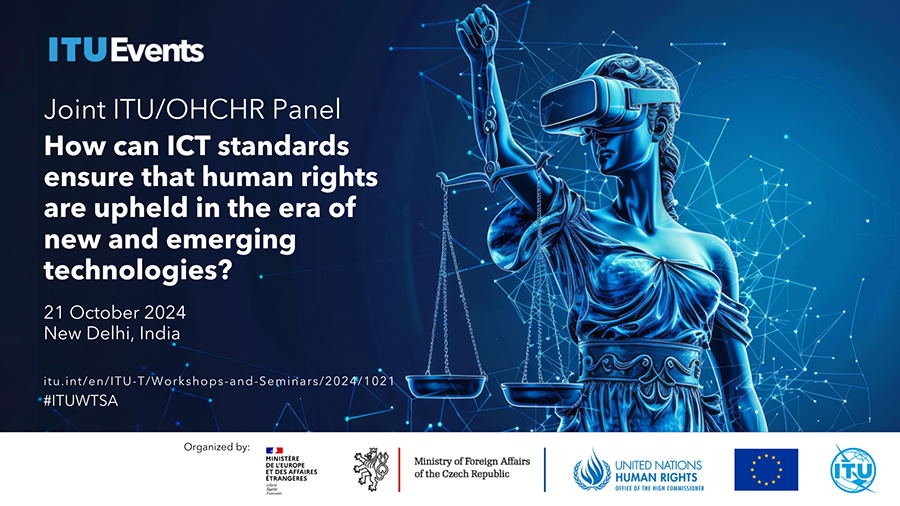
In today’s fast-paced digital landscape, emerging technologies are revolutionizing our world, creating significant opportunities for innovation and societal progress, but also raising complex challenges that impact human rights. As these technologies - including artificial intelligence, metaverse, and 5G - become more embedded in everyday life, it is critical to ensure that human integrity, dignity, and rights are upheld.
This high-level dialogue seeks to explore the ways in which human rights can be protected amidst the rise of new technologies, emphasizing the need to preserve human autonomous decision making and personal safety in a connected digital world. The discussion centered on the role of technical standards in ensuring that these technologies are developed and deployed in ways that are consistent with human rights, including privacy, data protection, non-discrimination, access to impartial information or even right to work.
This event highlights the importance of a multi-stakeholder approach, bringing together diverse perspectives from governments, international organizations, the private sector, civil society and standards development organizations. Collaboration among these groups is vital to ensure the understanding of what is practically needed and meant to develop safe and trustworthy standard-setting processes. Ultimately, the event is to emphasize that a human rights-based approach to emerging technologies is not only necessary for protecting individuals but is also essential for building trust in cyberspace. By embedding human rights into the fabric of technical standards, stakeholders can ensure that emerging technologies serve to enhance rather than undermine human integrity in the digital era.
Moderator:
- Wendy Teresa Goico Campagna, Minister Counsellor for Economic and Cooperation Affairs at the Permanent Mission of the Dominican Republic to the UN &
ITU Latin American and Caribbean Group (GRULAC) Coordinator
Opening Remarks:
- India
- Czech Republic
- European Commission
Panelists:
- John Omo, Secretary General,African Telecommunication Union
- Michel Oliviera De Souza, Human Rights Officer, The Office of the United Nations High Commissioner for Human Rights
- Per Frodjh, Vice President international standards, Ericsson
- Raquel Renno Nunes, Senior Digital Programme Officer, Article 19 and Freedom Online Coalition Advisory Network Member
- Olivier Alais, Program Coordinator, Telecommunication Standardization Bureau, ITU
Didier Berthoumieux , Head of Standardization Office, Nokia
Kwame Baah Acheamfuor, Director, International Affairs to ICT Organizations, Ghana
Conclusion:
Representative from France
Useful Links:
